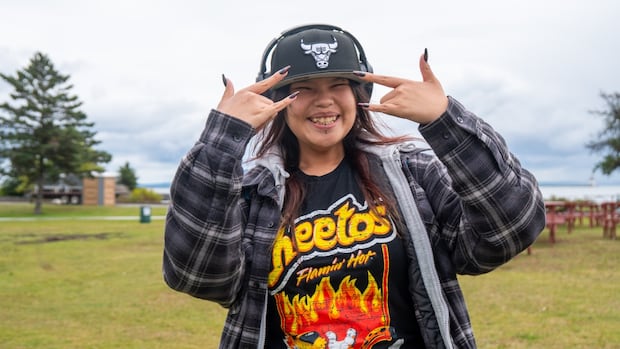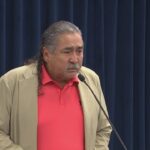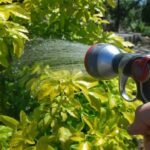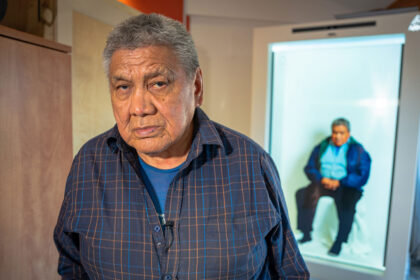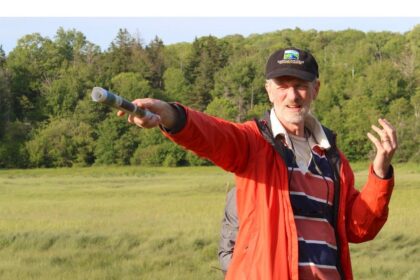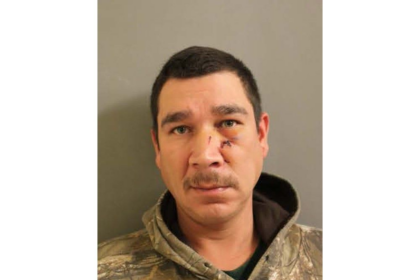Thunder BayAs students at Thunder Bay, Ont.’s all-Indigenous high school get settled in the city, faculty and community leaders are running a number of orientation events to help them make the transition. Here’s what those at Thursday’s Amazing Race event had to say about moving hundreds of kilometres from home to complete high school.Orientation activities continue for students at city’s all-Indigenous high schoolSarah Law · CBC News · Posted: Sep 05, 2025 4:00 AM EDT | Last Updated: 9 hours agoDestiny Mamakwa, a Grade 12 student at Dennis Cromarty High School, moved to Thunder Bay, Ont., for school from Deer Lake First Nation. She says she’s doing well in school and looks forward to graduating. (Sarah Law/CBC)Destiny Mamakwa is heading into her last year of high school feeling hopeful.The Grade 12 student at Dennis Franklin Cromarty High School (DFC) in Thunder Bay, Ont., is keeping her options open after graduation. She’s considering either going to college for a mechanics program or becoming a hairstylist.While many high school students struggle with finding their locker on the first day, Mamakwa and her peers faced a much bigger challenge: navigating a new city.Every fall, dozens of teenagers from remote First Nations in northern Ontario move hundreds of kilometres from home to attend DFC due to the lack of high schools where they’re from. Mamakwa, for example, is a member of Deer Lake, an Oji-Cree First Nation about 600 kilometres northwest of Thunder Bay that’s only accessible by air or winter road. “I love it here. There’s lots of stuff to do,” Mamakwa said of her experience in the northwestern Ontario city. “I’ve been doing so good in school.”On Thursday, Mamakwa joined 160 of her peers in DFC’s annual Amazing Race, which aims to familiarize students with the city by getting them to use public transit to find landmarks in town.The stops included the Youth Wellness Hub, Nishnawbe Education Council office, Marina Park, Cinema 5 Skatepark, Roots Community Food Centre and the Intercity Shopping Centre.”Some of them come [to Thunder Bay] as young as 13 years of age, and it’s such a huge step for them to be in a new environment,” said Matthew Tilbury, DFC’s transition co-ordinator.”Getting used to the city, getting used to learning how to use those buses and meeting some of the community members at these locations around town.”‘Don’t isolate yourself’Dylan Linklater, a member of Sandy Lake First Nation, grew up in Thunder Bay. The Grade 12 DFC student said she’s been learning a lot from her peers who have moved to the city from remote communities.Since starting high school, she’s picked up a number of new hobbies, including basketball and cross-country running. She’s currently taking a course in entrepreneurship and transportation technologies, developing skills she hopes to bring back to Sandy Lake.Grade 12 student Dylan Linklater, who is a member of Sandy Lake First Nation but grew up in Thunder Bay, Ont., says she’s hoping to go into the trades when she graduates to help fill labour shortages in the north. (Sarah Law/CBC)”In the reserves, there’s a shortage of tradespeople, and it’s gonna be different to have a woman in the industry back at home,” Linklater said.As she helps her peers navigate the city, Linklater said she wants to learn more about her community’s traditional language, Oji-Cree.At the Amazing Race event, “we’ve checked out a few different spots for workshops and programs for kids like me.””They help us reconnect with our culture and stuff and learn the language,” she said of the supports available.Kariya Kakepetum, a Grade 11 student from Sandy Lake First Nation, says it’s important for new students to step outside of their comfort zone as they adjust to life in Thunder Bay, Ont. (Sarah Law/CBC)Kariya Kakepetum, who’s also a member of Sandy Lake First Nation, is starting Grade 11 this semester. Her favourite subjects in school are English and history, and she’s recently learned how to skateboard.Moving to the city from the north, she said it’s important for new students to be aware of their surroundings.”Definitely don’t go anywhere alone. It is scary when you’re alone,” Kakepetum said. “Most of all, just have fun. Don’t isolate yourself, don’t stay inside all the time. Go outside, experience things.”While she admits the transition may be easier for extroverts, she also shared advice for those who tend to keep to themselves.”You have to eventually get comfortable being uncomfortable,” Kakepetum said. “You really do have to push yourself.”Orientation activities continue with the DFC Experience on Friday, which invites prospective students to tour the school and offers several workshops for current students. You have to eventually get comfortable being uncomfortable.- Kariya Kakepetum, Grade 11 student, Dennis Franklin Cromarty High SchoolOn Friday afternoon, they’ll be invited to the Skate the Giant event at the waterfront, which includes a skate show, demonstrations and lessons for those of all skill levels.As well, art pieces created by DFC students earlier this year will be on display at the Thunder Bay Conservatory before being featured at Saturday’s annual Wake the Giant Music Festival, the school’s homecoming event.This year’s festival, hosted by Ojibway and Cree musician Sara Kae, will include a number of Indigenous artists, community resource booths and a headliner performance by the Black Eyed Peas at the waterfront.As new and returning students get settled in the city, Tilbury’s message to the broader community is to “be warm, be welcoming, say hello.””We just want them to feel like it’s their home away from home,” he said.ABOUT THE AUTHORSarah Law is a CBC News reporter based in Thunder Bay, Ont., and has also worked for newspapers and online publications elsewhere in the province. Have a story tip? You can reach her at sarah.law@cbc.ca
Monday, 22 Dec 2025
Canada – The Illusion
Search
Have an existing account?
Sign In
© 2022 Foxiz News Network. Ruby Design Company. All Rights Reserved.
You May also Like
- More News:
- history
- Standing Bear Network
- John Gonzalez
- ᐊᔭᐦᑊ ayahp — It happened
- Creation
- Beneath the Water
- Olympic gold medal
- Jim Thorpe
- type O blood
- the bringer of life
- Raven
- Wás’agi
- NoiseCat
- 'Sugarcane'
- The rivers still sing
- ᑲᓂᐸᐏᐟ ᒪᐢᑿ
- ᐅᑳᐤ okâw — We remember
- ᐊᓂᓈᐯᐃᐧᐣ aninâpêwin — Truth
- This is what it means to be human.
- Nokoma


